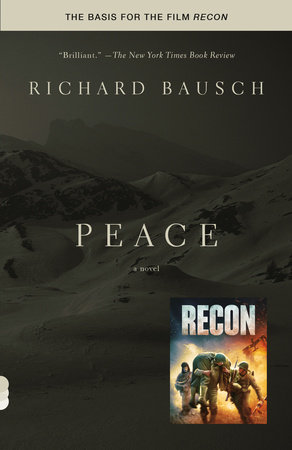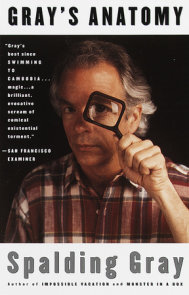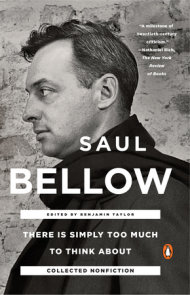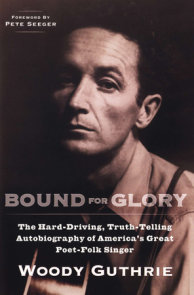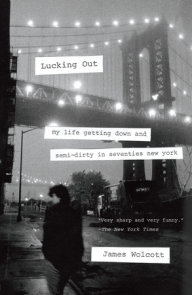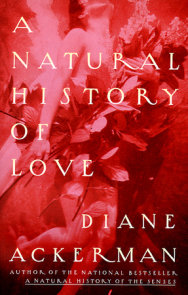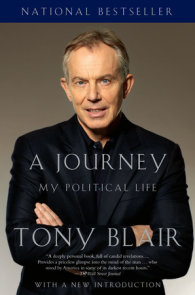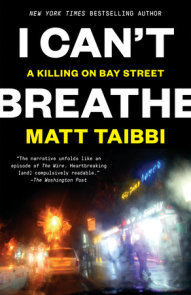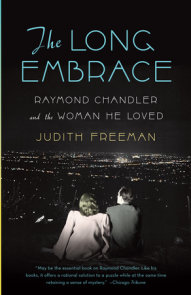READERS GUIDE
"Brilliant."—The New York Times Book Review
The introduction, questions, and suggestions for further reading that follow are designed to enliven your group’s discussion of Peace, Richard Bausch’s searing and powerful novel about the moral ambiguities and emotional costs of war.
Introduction
Set in Italy in the harsh winter of 1944, Peace tells the story of three American soldiers—Asch, Joyner, and Marson—who struggle to stay alive in the country near Cassino, through brutal weather, uncertain of their mission, their location, or their moral compass.While searching a horse-drawn cart, Marson’s unit discovers a German officer and a prostitute. A shoot-out ensues. Two American soldiers are killed. Moments later, Marson shoots and kills the German officer. Glick, another solider in their company, kills the unarmed but furious prostitute. In this scene, Bausch captures perfectly the messy, lightning-quick, panicked nature of wartime skirmishes, where decisions made in the heat of the moment have irreversible consequences. Everyone is stunned at the prostitute’s death, but no one is sure how to react or what to say.
Marson feels consumed by a kind of spiritual nausea after the shootings. He knows, intellectually, that he has killed men in battle before; but never at close-range or with such dreadful certainty. The look on the German’s face as he dies haunts Marson. He is even more troubled by the comically horrific image of the prostitute’s legs upended in the air. He can’t shake the sickness in his soul induced by these images. Nor can he decide whether or not to report Glick. As they venture further up the mountains, to scout out the retreating German army, tensions rise. Asch, who is Jewish, and Joyner, who is an anti-Semite, disagree over what to do about Glick: Asch insists on reporting him, while Joyner says that he too would have shot the prostitute. Marson struggles to keep control of the situation.
Guiding the men through the freezing rain and snow is Angelo, an elderly Italian man they come across, whom Joyner regards with deep suspicion. And when they hear the shots of a firing squad from a village below, and find themselves hunted by a sniper, the stress of their predicament becomes almost unbearable.
The strain of war shows up most vividly as Marson agonizes over his actions and those of his men. On the eve of his departure, his father had solemnly told him to do "[his] duty." Marson struggles to do what’s right, to complete his mission, and keep his increasingly desperate men in line. The novel is told from his point of view, allowing readers to see how the war registers on a consciousness that is sensitive to the moral ambiguities of war. He is a man who feels genuine remorse at having to kill. Unlike Joyner—who seems to feel that once the shooting starts, everyone is fair game—or Asch—who argues that if they don’t report Glick, they’re no better than the Nazis they’re fighting against— Marson is conflicted about Glick’s actions. He cannot shake the terror and emptiness he feels after taking the life of the German officer.
Ultimately, Peace plunges readers right into the depths of war—its moral complexities, and its excruciating physical conditions. It reveals the terrible emotional consequences of killing, even killing that falls under the proper rules of engagement. It holds readers in a state of high-wire suspense right up to the dreadful final decision Marson is forced to make. It is a significant addition to the library of great war literature.
Questions and Topics for Discussion
1. Why would Richard Bausch choose the word Peace for the title of a book about war?
2. In what ways does Peace capture the emotional and physical realities of war? What scenes feel especially vivid and real? How does Bausch reveal the emotional toll that war takes on soldiers?
3. How are the soldiers affected by the harsh physical conditions they have to endure? In what ways are these conditions more challenging than the combat itself?
4. Increasingly troubled by Glick’s killing of the German prostitute, Asch says, "Glick’s a killer. . . . We’re soldiers. He’s a killer" [p. 115]. Is there a clear line, as Asch implies, between soldiers and killers? What is the difference?
5. Asch argues with Joyner that unless they report Glick’s murder of the prostitute, they will be no different than the Nazis. Is Asch right? How does Joyner respond?
6. Joyner and Asch are at each other’s throats throughout the novel, with Joyner’s anti-Semitism bringing them nearly to blows on several occasions. They seem to hate each other. And yet when Asch is wounded, Joyner does all he can to save him, staunching his wounds and carrying him down the mountain. And when Asch dies, Joyner is beset with rage and grief at how callously Asch’s body is treated by the medic. Why would Joyner behave this way after all the animosity between them?
7. Why is Marson so conflicted about whether or not to report Glick? Had Glick and Asch lived, would Marson likely have backed Asch in reporting Glick?
8. After he kills the German officer and Glick kills the prostitute, Marson feels a kind of spiritual nausea. "Marson kept feeling the sickness. It was as if something in him had been leveled, and the simplest memories of himself as he had always been were beside the point" [p. 7]. And near the end of the novel, after he kills the sniper, he "feels a deadness at his heart’s core" [p. 154]. What has the war done to Marson spiritually? How has it changed how he sees himself, especially in relation to his former life?
9. Is it clear, at the end of the novel, whether Angelo was a spy? Why does Marson let him go after he’s been ordered to shoot him?
10. Does the novel as a whole seem to take a clear moral position on war, or on how humans should behave when at war? Is the novel about more than its specific characters and their actions?
11. Should Peace be read as an antiwar novel, or simply as a very astute exploration of the emotional and psychological consequences of war and killing?
12. On the eve of his departure, Marson’s father solemnly tells him to do his duty. Does Marson do his duty? In what ways is he challenged by the soldiers under his command? How does he respond to the challenges he faces? Does he make the right choices at the most decisive moments in the novel?
13. What light does Peace shed on the United States’s handling of the current wars in Iraq and Afghanistan? What does it reveal about the basic nature of all wars?






